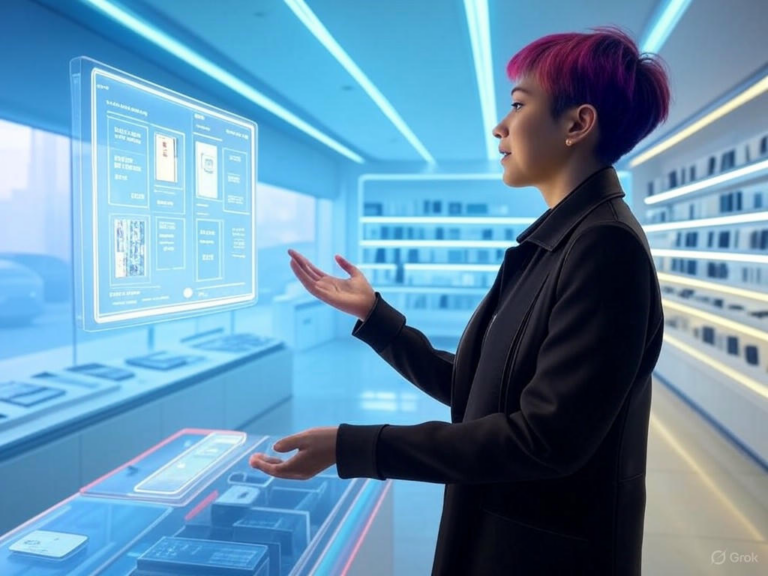
AI Tool Accelerates Health Treatments via UVA Innovation
How AI in Healthcare is Revolutionizing Drug Development at UVA
Imagine speeding up the discovery of life-saving treatments by years— that’s the promise of AI in healthcare today. Scientists at the University of Virginia School of Medicine have created LogiRx, an advanced AI tool that’s pushing boundaries in medical research. It’s not just about spotting potential treatments; LogiRx delves into how drugs interact at the cellular level, helping identify ideal patient groups and uncovering new ways to repurpose existing medications.
This innovation is already making waves, as shown in early tests where LogiRx pinpointed a drug candidate for preventing heart failure—a major global killer. Have you ever wondered how technology could make healthcare more efficient? AI in healthcare is turning that idea into reality, offering fresh hope for faster, more effective patient care.
Why LogiRx Stands Out in Advancements of AI for Medical Treatments
AI in healthcare has evolved, but LogiRx takes it further by predicting drug effects on biological processes, rather than just analyzing data patterns. This means researchers can see the full picture of a drug’s impact, including unintended benefits or risks. Dr. Jeffrey J. Saucerman from UVA highlights this shift, saying, “AI needs to move from detecting patterns to generating understanding. Our LogiRx tool helps us identify not just which drugs can be repurposed for heart disease but how they work in the heart.”
It’s a game-changer because traditional tools often stop at surface-level correlations. LogiRx provides the “why” behind drug actions, making AI for medical treatments more reliable and actionable for real-world applications.
Shifting from Pattern Detection to Deep Biological Insights in AI in Healthcare
Most AI tools in healthcare focus on spotting trends in data, like predicting disease outbreaks. But LogiRx goes deeper, explaining the biological mechanisms that make treatments work. This not only confirms if a drug is effective but also reveals how it achieves results at a molecular level.
Think about it: In a field where every detail matters, having explainable AI in healthcare builds trust among doctors and patients. It’s like having a smart assistant that doesn’t just give answers but explains its reasoning, aligning with the push for transparency in technology.
Exciting Breakthroughs: Repurposing Drugs with AI in Healthcare
One of LogiRx’s standout features is its ability to find new uses for old drugs. For instance, researchers at UVA discovered that escitalopram, a common antidepressant, could potentially prevent heart changes that lead to heart failure. This is huge because heart failure contributes to nearly half of all cardiovascular deaths in the U.S.
Repurposing drugs like this cuts down development time dramatically, since these medications have already been tested for safety. What if we could apply AI in healthcare to tackle other overlooked conditions? It’s an opportunity to innovate without starting from scratch.
The Perks of Drug Repurposing Through Innovations in AI for Medical Treatments
By using AI, teams can spot both the benefits and risks of drugs early on, avoiding surprises down the line. Here’s why this matters: It streamlines the process, making treatments more accessible. Key advantages include:
- Shorter timelines for new applications, bypassing years of initial testing
- Reduced costs, which could lower the price of healthcare for everyone
- Proven safety records, minimizing patient risks
- Opportunities to address rare diseases that lack dedicated therapies
Could this approach help in your community? AI in healthcare is opening doors to more personalized and efficient solutions.
AI Integration Across UVA: Enhancing AI in Healthcare Systems
LogiRx is just one piece of UVA Health’s larger puzzle in weaving AI into everyday healthcare. Another system, RAMP, uses AI to analyze patient data in real time, spotting trends and alerting teams to urgent needs. This integration ensures that AI in healthcare isn’t just theoretical—it’s actively improving outcomes on the ground.
For example, RAMP helps doctors predict health issues before they escalate, combining historical and live data for smarter decisions. It’s a practical step toward making AI for medical treatments a standard in hospitals.
The Rise of AI in Healthcare Education at UVA
AI isn’t stopping at research; it’s reshaping how future doctors learn. At UVA School of Medicine, students use AI tools to practice communication skills and even grade assignments. Dr. Meg Keeley, a senior associate dean, stresses the importance of this: “It is critical for people to understand how to generate prompts, and that you use AI as a consult tool in learning how to generate diagnosis and do clinical reasoning, but not to replace the human.”
This hands-on approach teaches students to guide AI effectively, ensuring that AI in healthcare enhances, rather than overrides, human expertise. What does this mean for the next generation of healthcare professionals? It’s about building a balanced future where technology and people work together seamlessly.
Expanding AI Applications in Cardiac Care: A Focus on AI in Healthcare
UVA is also applying AI to cardiac treatments, like improving cardiac resynchronization therapy (CRT) for heart failure patients. By training AI to analyze MRI data, doctors can predict outcomes more accurately, moving beyond generic approaches. This is another way AI in healthcare is tailoring treatments to individual needs.
Researchers are using AI algorithms that mimic human brain patterns to spot subtle abnormalities in imaging. It’s like giving doctors a supercharged second opinion, drawing from vast datasets to inform decisions.
Streamlining MRI Analysis with Deep Learning in AI for Medical Treatments
With data from over 200 anonymized patients, UVA’s AI models are learning to automate MRI reviews, identifying issues that might be missed otherwise. As one clinician put it, this tech works “like a human brain and see overall patterns, but with features you might not have identified from the start.”
The result? More personalized care that considers unique patient factors, from demographics to specific symptoms. This could revolutionize how we handle heart conditions, making AI in healthcare a key player in precision medicine.
The Future Outlook for AI in Healthcare and Treatment Innovation
As tools like LogiRx advance, AI in healthcare is set to redefine how we develop and deliver treatments. These systems are evolving to not only detect issues but explain the science behind them, paving the way for quicker discoveries. From drug repurposing to predictive analytics, the potential is vast.
It’s an exciting time, but we must keep human insight at the core. A hypothetical scenario: What if AI flagged a new use for a common drug, but doctors verified it through experience? That’s the ideal balance we’re aiming for.
Keeping Human Expertise Central in the Evolution of AI for Medical Treatments
UVA researchers emphasize that AI should support, not supplant, human judgment. Dr. Keeley reminds us: “Really knowing that you, the human, are responsible for the veracity of that information… we’ve got to remain diligent about keeping the human as part of the equation.”
This philosophy ensures that AI in healthcare remains ethical and effective, blending tech’s speed with people’s wisdom. So, how can we all stay involved in this transformation?
Wrapping Up: Embracing the Next Wave in AI-Driven Health Solutions
LogiRx from UVA School of Medicine is a prime example of how AI in healthcare can accelerate treatment development, from uncovering heart failure preventives like escitalopram to fostering broader innovations. These advancements highlight the power of combining AI with human oversight for faster, safer options.
If you’re passionate about healthcare tech, consider exploring how AI could impact your own life or work. We’d love to hear your thoughts—share this article, leave a comment below, or check out related UVA resources for more on cutting-edge medical research.
References
- Artificial Intelligence Tool to Accelerate New Treatments. University of Virginia Health. Source
- UVA Develops AI Tool to Accelerate New Treatments. UVA School of Medicine. Source
- Symposium Explores Opportunities and Challenges of AI in Health Care. Darden School of Business. Source
- UVA Unveils the Power of AI in Accelerating New Treatment Discoveries. Supercomputing Online. Source
- UVA Health Ramps AI and Real-Time Analytics. Healthcare IT News. Source
- Machine Learning Outcomes for Cardiac Resynchronization. UVA Physician Resource. Source
AI in healthcare, LogiRx, drug repurposing, UVA School of Medicine, heart failure treatment, AI medical research, artificial intelligence in medicine, treatment acceleration, precision medicine, healthcare innovation







